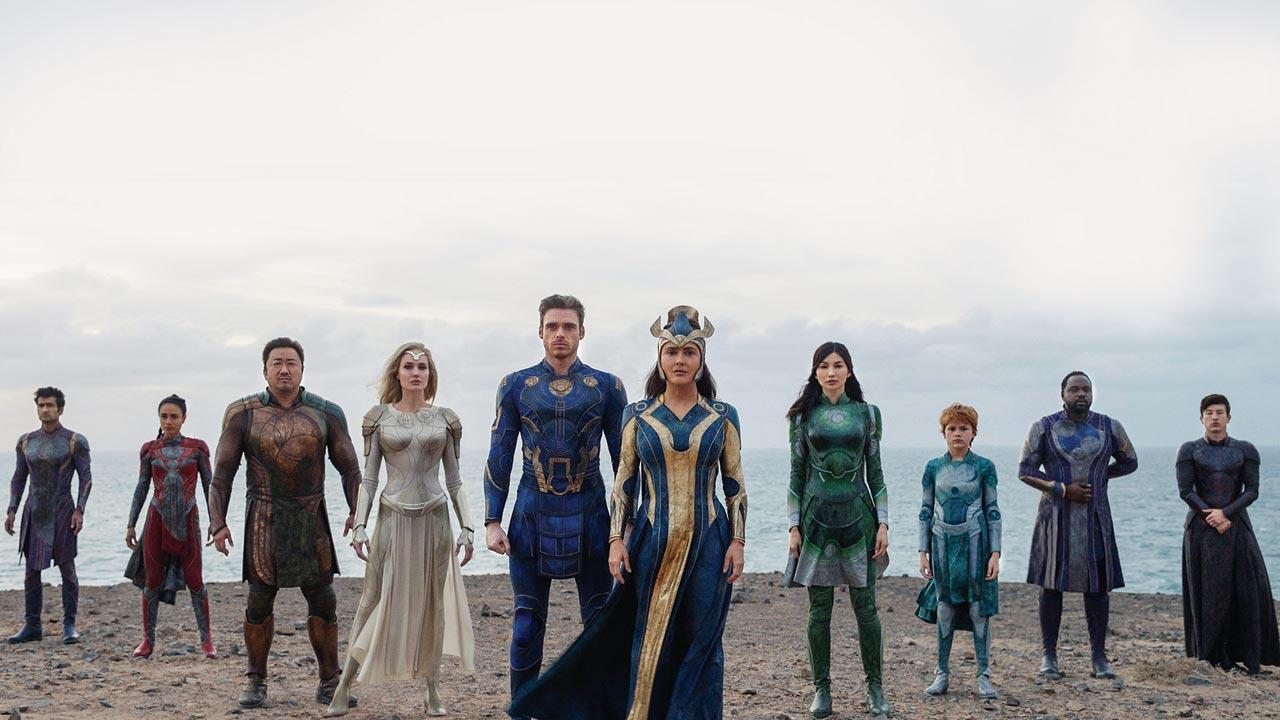We haven’t seen superheroes who look like us, sound like us, or have names like ours-Kumail Nanjiani
8:33 AM
Posted by Fenil Seta

As MCU presents South Asian and deaf superheroes with Eternals, Kumail Nanjiani and Lauren Ridloff say on-screen representation should have happened long ago
Mohar Basu (MID-DAY; October 31, 2021)
With the new Marvel movie Eternals, it’s evident that representation and diversity are not mere stray conversations in the movie business. It’s showing on the screens and behind the camera. That’s the thought with which we start our early morning chat with Kumail Nanjiani and Lauren Ridloff, who play superheroes alongside Salma Hayek, Angelina Jolie, Richard Madden and Gemma Chan in Oscar-winning director Chloe Zhao’s film. This might be a heavy-duty conversation for a 5 am chat, but both are only happy to indulge, having fought the good fight.
“We haven’t seen superheroes who look like us, sound like us, or have names like ours. I am thrilled to be part of a change that ideally should have happened a long time ago,” says Nanjiani of The Big Sick (2017) fame.
Ridloff echoes his sentiments as she says, “There are so many firsts in Eternals. I see the importance of that even before the film has been released. The representation will directly impact so many different communities worldwide.”
The Pakistani-American actor made a statement about his South Asian identity as he wore a purple-and-gold sherwani, made by a Karachi-based designer, at the film’s premiere. “I just wanted to show how beautiful Pakistani clothes can be. When I got the movie, I knew what I would be wearing at the première. I called my mom to get the name of a designer in Karachi. We contacted them, and they were kind to hand-make it, keeping in mind my specifications and the colours I wanted,” says Nanjiani.
For Ridloff, the victory is beyond that of cultural identity. It’s about giving screen presence to the deaf community that is often not allowed equal opportunities. Speaking to us in American Sign Language, as her translator communicates to us, she says, “This story shows what we refer to as ‘deaf gain’ in the deaf community. It means deafness is specifically beneficial to you. For instance, imagine you are in a plane and a baby is crying next to you. I can sleep in peace; that’s no problem. In this movie, we show several instances on what deaf gain is for the community at large.”
This entry was posted on October 4, 2009 at 12:14 pm, and is filed under
Bollywood News,
Eternals,
Karachi,
Kumail Nanjiani,
Lauren Ridloff
. Follow any responses to this post through RSS. You can leave a response, or trackback from your own site.
Subscribe to:
Post Comments (Atom)
Post a Comment